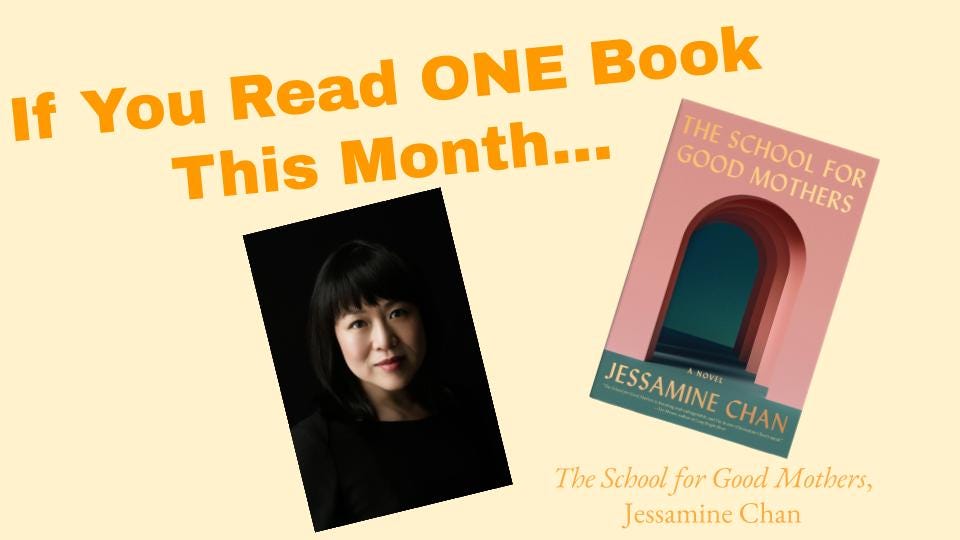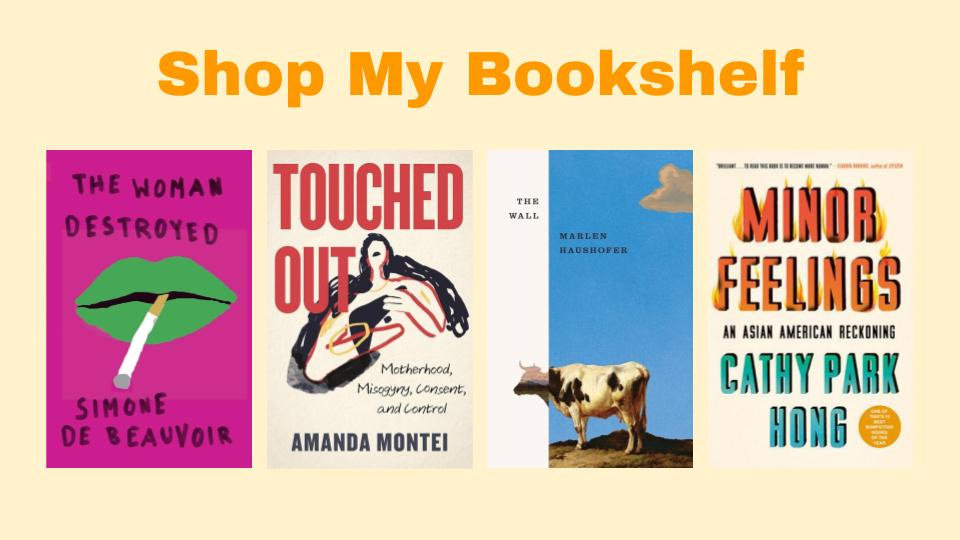As I gear up for my “Hysterical” Women class launching on March 13th, I’ve been thinking about some of my favorite writers who have helped to unravel the trope of the hysterical woman. These writers have illuminated the tug o’ war between the narrative that women are both too much – and not enough – all at the same time. We’re too emotional, too crazy, too overbearing, too loud, too angry, too whiny, too easily dismissed. Instead, the women who are revered in our collective imagination are the ones who are calm, cool, collected, thin, beautiful, white. And any woman who doesn’t fit this mold either because she’s too messy, too out of control, too focused on the “wrong” things…too, too, too…is hysterical.
Jessamine Chan’s novel The School for Good Mothers is a terrifying look at what happens when the idea of women being “too much” is taken to the extreme. It’s a look at a world where misogyny rules and women’s decision making is punished and policed. The premise is a dystopian society where women are sent to an institution to learn how to be “good” mothers or else risk losing their children forever. But it doesn’t take long to realize that the world Chan has dreamt up is not so far from the very real world we live in today. In fact, Chan based the idea for her book on a New Yorker piece she read by Rachel Aviv, which if you haven’t read will turn your world upside down.
The question of who is hysterical - Frida, the narrator, or the society she lives in - pervades the book. Who gets to decide the “right” way to mother? Who gets to write the “rules on womanhood”? The tightrope of womanhood and motherhood is a sham and yet we’re still bombarded with the cult of perfect everywhere we turn, from momfluencers, tradwives, the media and everywhere in between.
*Featured Courses*
Outlining Class (one day)
Your outline serves as the skeleton of your book. Without it, there is no roadmap and nothing to turn to when you hit inevitable roadblocks. This two hour class will provide you with the template you need to take your story to the next level by providing you with actionable instruction on what to include in your outline and why.
Finding Your Narrative (six weeks)
This is an interactive 6-week class on finding the narrative thread in your story. We will look at the structures and narrative arcs that have worked for other writers and hammer out the threads of your story: What themes keep popping up in your writing? What ideas keep you up at night? What pieces of your personal history haunt you? Will you bring in outside research? Other people's stories? How will all of these threads come together? You will walk away with a clear sense of the foundational themes that drive your writing.
Other Upcoming Courses…
Hysterical Women (four weeks)
Sylvia Plath. Susannah Kaysen. Elizabeth Wurtzel. Catherine Cho. Esme Wang. Terese Marie Mailhot. Juliet Escoria. We will use the writing of a selection of these authors (and more) as a launching point for our own exploration of the darkness in our minds. Come ready to talk about the taboos and tough stuff that most of us keep hidden away in locked boxes and to dive into writing exercises designed to get you to “go there”.
The Secrets to Pitching Essays That Get Published (four weeks)
Writers need to pitch editors to get their work noticed, but the skills needed to pitch an essay or article are vastly different than those needed to write one. In this four week class, we will learn the basics of pitching from how to know what editors are looking for to how to know which publications will be the best fit for your work. You will also have the opportunity to pitch your idea to a panel of editors in the final week of class and hear feedback about what works/what doesn’t from an insider’s perspective.






This book is hauntingly disturbing and yet so accurate as a portrayal of modern "american" motherhood